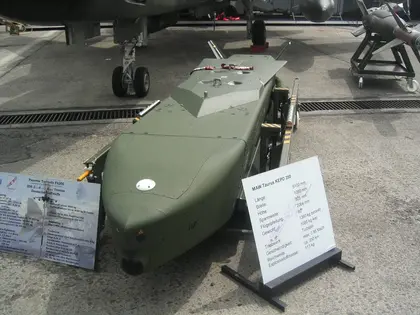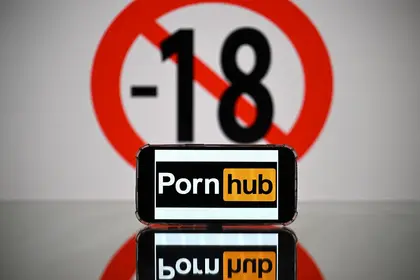While many of us started the new year with fireworks, good cheer and the company of loved ones, Ukrainians faced massive Russian aerial attacks, shattered apartments and the murder of loved ones.
Vladimir Putin is determined to defeat and destroy an independent Ukraine. Ukraine is equally determined to resist. But what are the rest of the world’s democracies resolved to achieve in this epoch-defining struggle? The answer we give in 2024 will not only shape the future of Europe. It will also tell us something important about the relative strengths of early 21st-century democracy and autocracy.
JOIN US ON TELEGRAM
Follow our coverage of the war on the @Kyivpost_official.
For a start, we must be clear where things stand on the ground in Ukraine. There is no stalemate of the kind that might lead to a frozen conflict or negotiated settlement, as some in the west naively hope. Rather, we are in the middle of a long, complex war that will probably last until at least 2025, if not longer. Neither side is giving up; either can still win, but not both.
Putin is exploiting all his advantages of scale, ruthlessness and dictatorship at home and the support of other such regimes abroad, including Iran, North Korea and China. Ukraine itself faces some big choices, including whether to draft a large number of young men to regenerate its depleted and exhausted forces. But decisive for the outcome of the conflict will be choices made in the next few months by the democracies supporting Kyiv.

‘We Are Blocking Propagandists’ – Zelensky Imposes Sanctions on Pro-Russian Politicians
At the moment, we are doing enough to stop Ukraine being defeated but not enough to help it win. In 2024, we could provide the tools for Kyiv to regain more territory and convince Russia it can’t prevail. That is the only path to a lasting peace.
Immediately, in a matter of days, this means more air defences. In a matter of weeks, it means more long-range missiles, notably the German Taurus, but also American ATACMS, so Ukraine can continue to push back Putin’s Black Sea fleet and target his strategic and symbolic stronghold in Crimea.
However, as a recent Estonian defence ministry study explains in compelling detail, the long-term essentials for Kyiv’s victory will be more extensive training of Ukrainian troops and a rapid, substantial increase in industrial production of weapons and munitions. (Of the 1mn artillery rounds the EU has promised Ukraine by March, less than a third have so far been delivered.)
Democracies, unlike dictatorships, can’t do this by command. Our political system requires the leaders of multiple national democracies to agree on clear strategic ends and persuade their voters and parliaments to authorise the necessary means. Even before the possible disaster of a second Donald Trump presidency, it’s plain that the US, given the febrile and fragile state of its democracy, is not going to lead this step change.
The responsibility therefore falls on Europe — and at issue, after all, is the defence of a European country. Are Europe’s leaders doing the necessary? Let’s take a look at their new year’s messages.
UK Prime Minister Rishi Sunak did not even mention the war in a boosterish account of his government’s successes, evidently targeted at this year’s general election. German Chancellor Olaf Scholz touched on it only in passing, before proceeding to the sacred subject of the German economy. Poland’s new prime minister, Donald Tusk, devoted his remarks entirely to the restoration of democracy at home.
While majoring on the theme of French pride, President Emmanuel Macron did propose a “rearmament of European sovereignty”, including “to stop Russia and support the Ukrainians”. But it was Finnish President Sauli Niinistö who delivered the essential message: “Europe must wake up.” Danish Prime Minister Mette Frederiksen was also admirably direct: “Ukraine lacks ammunition. Europe has not delivered what is needed. We will press for more European production. It’s urgent. And the Danish F16s will soon be in the air. The war in Ukraine is also a war for the Europe we know.” That’s the language we need.
In discussing wartime leadership, people always mention Winston Churchill’s dictum, “I have nothing to offer but blood, toil, tears and sweat.” But in this case, the blood, sweat and tears are entirely the Ukrainians’. All that’s required of the rest of us is clear thinking, sober determination and an entirely manageable reallocation of resources. Moreover, the urgently needed defence-industrial investment will create jobs at home, as well as enhancing our own security. Is this really too much to ask?
Timothy Garton Ash is a British historian, author and commentator. He is Professor of European Studies at Oxford University. Most of his work has been concerned with the contemporary history of Europe, with a special focus on Central and Eastern Europe. He is the author of, among other books, ‘Homelands: a Personal History of Europe’
This article is reprinted with the author’s permission and first appeared in the Financial Times © 2023 The Financial Times Ltd. All rights reserved. See the original here.
You can also highlight the text and press Ctrl + Enter










